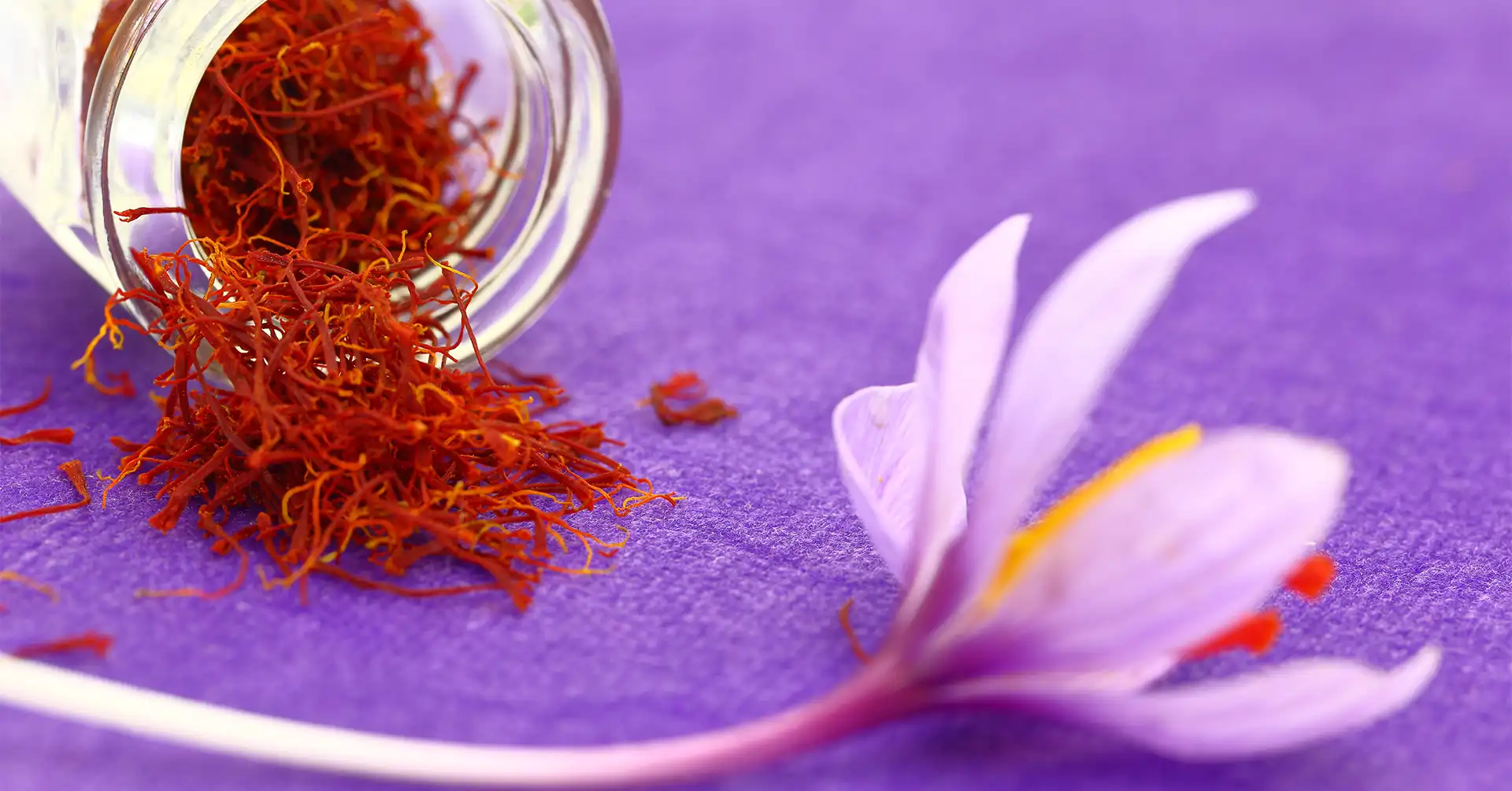Well, folks, as you know, saffron is a highly valuable spice as it has a number of health benefits. It costs about ($500-$1,000 per pound), and it is the world’s most expensive spice. It has anti-inflammatory, antidepressant, antioxidant, along with anticancer properties. Want to know more about the health benefits of saffron? So, keep reading the article to know more.
Saffron:
The ones who do not know about it, then let me tell you that it is a spice that is nicknamed “Red Gold,” and it is derived from the stigmas of the Crocus sativus flower, which is also known as the “saffron crocus.” In the whole stigma form, saffron threads are thin and orange-red in color.
It is largely grown in Iran and India. Folks, you can also use saffron for spicing up food such as traditional Persian dishes, Indian curry, and Spanish paella, or take it as a supplement.
Is Saffron a Safe Option?
Well, for the ones who have this doubt in mind, let me tell you that saffron is generally safe to take up to 1.5 grams daily. This equates to 3/4 teaspoon of the spice in ground form. There are about 550-600 whole stigma threads of saffron in a single gram. If you consume more than 5 grams of saffron daily, it can become toxic.
Many studies have shown that saffron is beneficial at only 30 mg. It is quite a safe dosage for an average person. 30 mg of saffron equates to about 13of the threads. You can have allergic reactions, but the possible side effects of it are stomach issues such as nausea, vomiting, and drowsiness.
In the next section of the article, we will talk briefly about the ones who should not consume saffron. So, pay close attention!
Who should not Consume Saffron?
Well, folks, there are minor (minor but still real) risks of taking large doses of it. Hence, it is not recommended to consume it for the following people:
- People using blood thinners or blood pressure medication
- Individuals who are susceptible to abdominal distress
- People who have allergic reactions to saffron
- Breastfeeding or pregnant women
- Individuals with bipolar disorder
If you know people who have these disorders, then these are the people who should not consume saffron.
What are the Health Benefits of Saffron?
In this section of the article, we will discuss some of saffron’s health benefits. So, in this section, we will discuss a few of saffron’s health benefits.
Depression relief:
Saffron helps in relieving depression. It is also nicknamed the Sunshine Spice due to its mood-improving potential. So, if you are experiencing anxiety or depressive symptoms, then there are plenty of natural solutions to consider. It supplementation may be beneficial for you. You can consume about 30 mg of saffron daily. It has been shown to be as effective in treating mild-to-moderate depression as conventional antidepressants, such as fluoxetine.
Antioxidant Boost:
Saffron also has some great antioxidant-boosting properties. The antioxidant compounds include:
- Safranal
- Kaempferol
- Crocin
- Crocetin
The medicinal properties that are present in saffron are:
- Mood-stabilizing
- Helpful in weight loss
- Preventive against certain cancers
- Antidepressant
- Anti-inflammatory
- Neuroprotective
- Protective against UV skin aging
Reduced PMS Symptoms:
If you are dealing with PMS symptoms, then you can consume saffron. Studies have shown that intake of it can help deal with PMS symptoms. Most of the women experience PMS symptoms, which include:
- Sleeping issues
- Problems concentrating
- Depression
- Skin breakouts
- Appetite changes
- Hormonal changes
- Pelvic pain
- Bloating
- Cramping
- Tender breasts
- Mood swings
- Period poops
- Irritability
Anti-Cancer Properties:
Saffron has antioxidant properties that neutralize the free radicals that may contribute to cancer. Saffron’s compounds may also selectively suppress or destroy cancer cells without killing healthy cells.
The anticancer effects of saffron are quite promising, but no large-scale clinical trials have indicated that these lab studies translate to benefits for human cancer patients. But folks, the anti-inflammatory and antioxidant properties may help to reduce your risk for cancer, especially if you are already vulnerable to oxidative stress or inflammation.
Better Weight Loss:
It is seen that saffron extracts have been shown to suppress appetite and also reduce stomach obesity. Snacking is a common habit that often leads to weight gain, and it will help in dealing with it by reducing food cravings.
Improved Insulin Sensitivity:
Saffron may help lower blood sugar levels and also raise insulin sensitivity. Both of these are important in preventing as well as managing diabetes. It could be a good supplement for diabetic as well as prediabetic individuals. A study in 2022 has concluded that clinical trials have revealed that there are multiple positive effects of it on diabetic patients, which include improvement of metabolic factors, glycemic control, lipid profile, inflammation, and oxidative stress.
Reduced Risk of Heart Disease:
Saffron is also helpful in curbing heart disease to a larger extent. Saffron may reduce the risk of cardiovascular disease. It is the number one cause of death in America. Studies have shown that saffron may also lower cholesterol levels and prevent blood vessels from clogging.
A 2022 clinical trial has found that saffron may help patients with clogged blood vessels to improve their quality of life and also reduce the risk of heart disease. Saffron’s antioxidant and anti-inflammatory properties may help in maintaining a healthy heart and blood vessels. This supports healthy blood pressure and reduces the risk of heart disease.
Sleep:
If you are having problems sleeping, then let me tell you that sleep dysfunction increases the risk of many health problems. Sleep duration, schedule consistency, and quality all impact your waking health. Fortunately, there are many potential solutions to sleep dysfunction, which include consuming saffron. By consuming saffron extract, you can sleep faster and stay asleep. A 2021 clinical trial has suggested that saffron extract may be a safe, all-natural way to improve sleep quality and sleep duration.
A recent scientific review has found that saffron and its antioxidant compounds have a hypnotic effect on users. This allows for a better and longer sleep. Promising early research has shown the need for larger clinical trials.
These are some of the benefits of saffron. In the next section of the article, we will discuss how to include saffron in your diet.
The Process to Include Saffron in Your Diet:
There are 3 common ways by which you can add saffron to your diet:
- By using saffron spice in your cooking. The expensive spice’s flavor has been described as earthy, subtle, floral, and sweet, then bitter.
- Take it to extract supplements. 30-100 mg daily dose is an average use of it’s extract.
- Steep of its strands in hot water. Make this herbal tea with warm (not boiling) water.
Folks, these are the ways by which you can add it to your diet.
Conclusion:
Saffron is really helpful in treating many health problems, and you must incorporate it into your diet. In this article, we have briefly discussed its health benefits. That’s all, folks. I hope the article helped you in getting all the information you needed.
Similar posts:
What Are The 3 Foods That Fight Memory Loss? Prevention!






